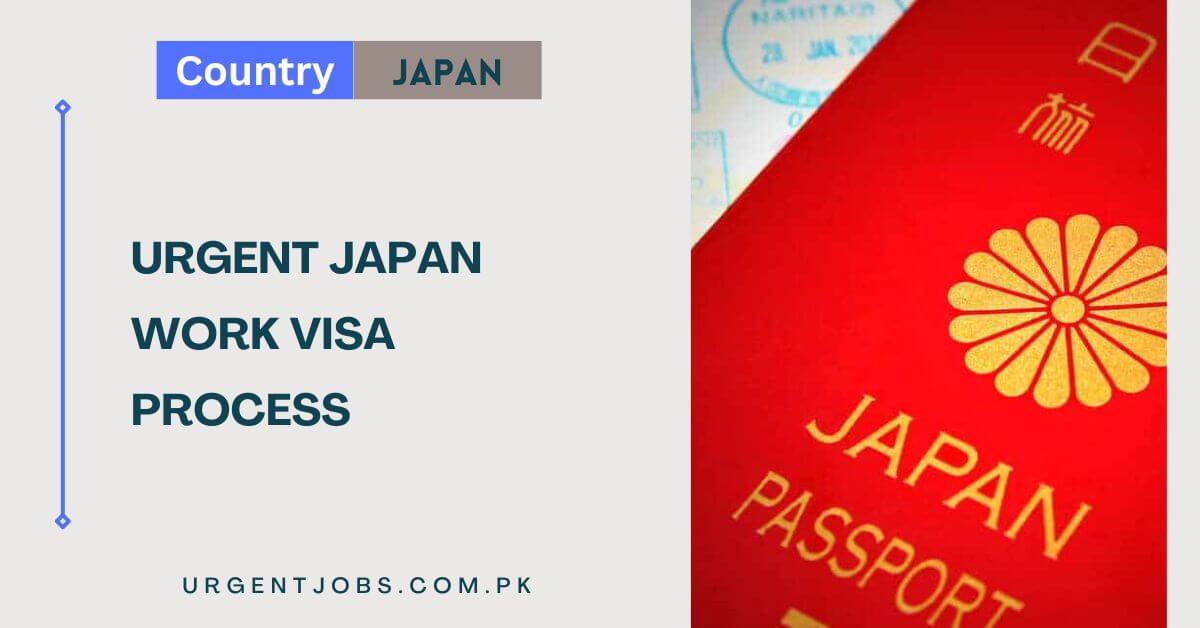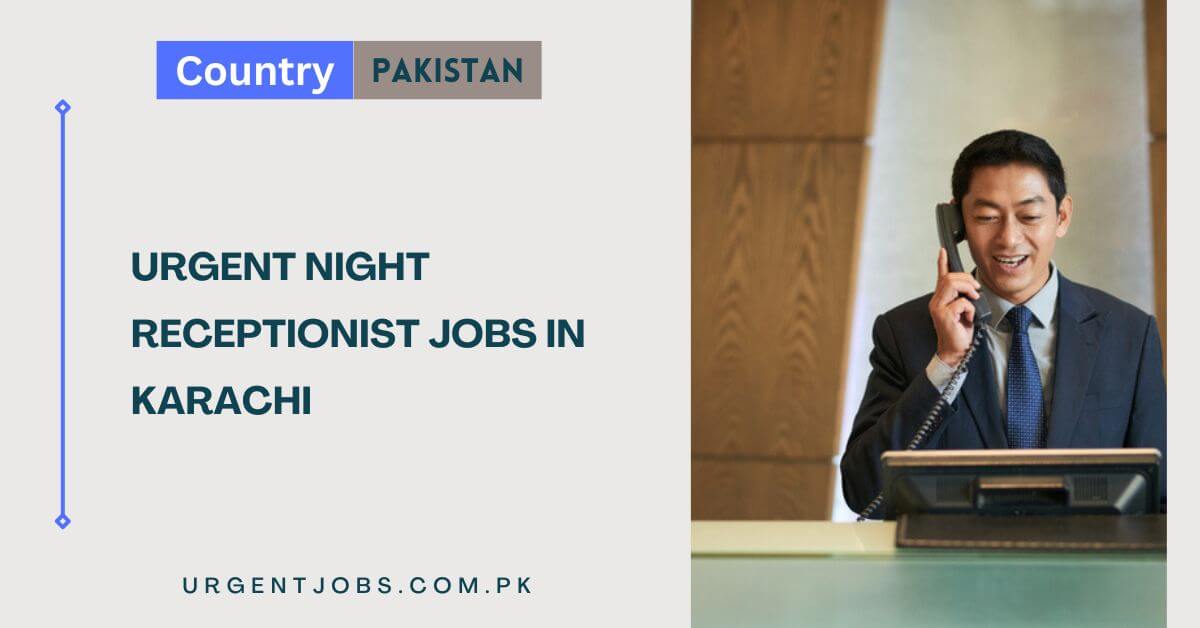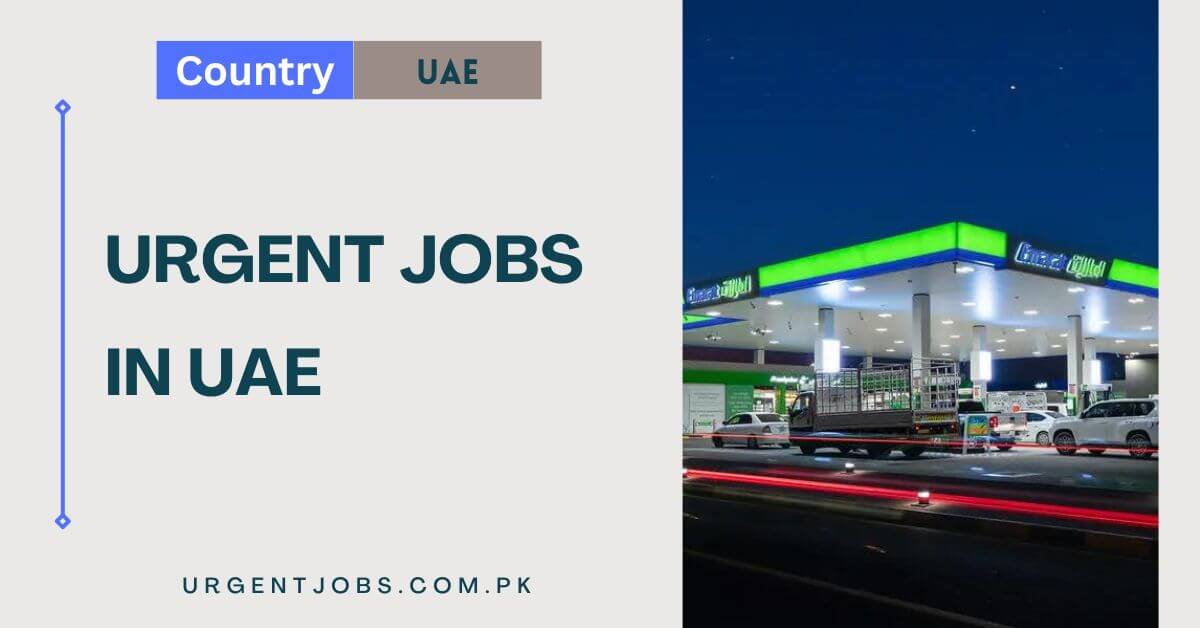Urgent New Jobs in Singapore for Foreigners 2024

Singapore, also known as Lion City, is a bustling metropolis that provides expatriates with an abundance of employment opportunities. Due to its robust economy, business-friendly environment, and cultural diversity, Singapore has become a popular destination for international professionals. In this comprehensive guide, we will examine the job market in Singapore, and the various industries, and offer advice on how to discover and secure employment in this dynamic city-state.

Details of Urgent New Jobs in Singapore for Foreigners
- Job Category: Singapore Government Jobs
- Job Type: Full Time
- Job Location: Singapore
- Basic Salary: $1200–$3000 per month
Singapore’s Thriving Job Market
Singapore’s robust and dynamic employment market attracts skilled workers from around the globe. The city-state’s emphasis on innovation, technology, and entrepreneurship makes it an ideal destination for professionals in search of intriguing career opportunities. The government’s pro-business policies, outstanding infrastructure, and high living standards all contribute to Singapore’s allure as a place to live and work.
List of New Jobs in Singapore for Foreigners
- Singapore is a significant center for the Information Technology (IT) industry, with numerous multinational corporations and startups driving innovation in areas such as artificial intelligence, cybersecurity, data analytics, and software development.
- Finance and Banking: As a global financial hub, Singapore provides a vast array of employment opportunities in banking, finance, investment, and wealth management. Many international banks and financial institutions are headquartered in the city-state.
- Singapore’s emphasis on technological progress has created a demand for skilled engineers in a variety of disciplines, such as civil engineering, mechanical engineering, electrical engineering, and aerospace engineering.
- Healthcare and Biomedical Sciences: Singapore’s medical facilities and research institutions are among the best in the world. Healthcare professionals, researchers, and specialists in fields such as biotechnology, pharmaceuticals, and medical technology can find employment opportunities.
- Tourism and Hospitality: As a result of Singapore’s thriving tourism industry, hotels, resorts, restaurants, and travel agencies offer numerous employment opportunities. Language proficiency and customer service skills are highly valued in this industry.
- Education: Singapore’s education system is highly regarded, and the country is home to prestigious schools, universities, and educational institutions. There are opportunities for international educators, administrators, and researchers.
- Singapore has a robust manufacturing sector, especially in the fields of electronics, precision engineering, chemicals, and pharmaceuticals. In this industry, skilled laborers and engineers are in high demand.
- Logistics and Supply Chain: Logistics and supply chain management have flourished due to Singapore’s strategic location as a key transportation hub. Shipping, warehousing, freight forwarding, and supply chain optimization all offer job opportunities.
Work Visa and Permit Requirements for New Jobs in Singapore
Foreigners wishing to work in Singapore must possess a valid work visa or permit. The following are prevalent categories of work visas:
- Employment Pass (EP): This visa is intended for professionals, executives, and managers with specialized talents and salary requirements.
- S Pass: The S Pass is intended for skilled mid-level workers who satisfy certain criteria, including educational requirements and salary thresholds.
- EntrePass: The EntrePass enables entrepreneurs and startup proprietors to establish and run a business in Singapore.
- Personalized Employment Pass (PEP): The PEP is a visa that allows highly skilled professionals to transfer employers without submitting a new work pass application.
- Other Work Permits: Other work permits are available for specific categories, including dependents of work permit holders, performing performers, and journalists.
Benefits of Jobs in Singapore for Foreigners
- Diverse Job Possibilities: The employment market in Singapore is diverse, with opportunities in industries ranging from finance and technology to healthcare, education, and the arts.
- Competitive Compensation: Numerous occupations in Singapore provide competitive salaries and wages that can support a high standard of living.
- Employment Security: In general, Singapore has strong labor laws that protect workers and provide a degree of employment security.
- Social Advantages: Employees in Singapore are entitled to benefits such as ill pay, maternity/paternity leave, and paid vacations, which enhance job satisfaction overall.
- Medical care: The National Health Service (NHS) provides healthcare services to residents and employees of Singapore, assuring their access to healthcare.
- Contributions to Pensions: Numerous employers in Singapore offer pension plans that enable employees to save for retirement.
- Work-life equilibrium: Singapore values work-life balance, with many employers offering flexible work hours and arrangements.
- Profession Advancement: Singapore offers career growth and development opportunities, including access to training and education programs.
- Cultural Diversification: The cultural diversity of Singapore allows employees to interact with people from numerous backgrounds and cultures, thereby fostering cultural awareness.
- Excellent Education: Singapore provides a robust education system, including free education for children ages 5 to 18.
- Travel Possibilities: Singapore’s location in Europe facilitates leisure and commercial travel to other European countries.
- Value of networking: Singapore is a global hub for business and commerce, offering opportunities for networking and establishing professional connections.
- Language Abilities: Working in Singapore can help non-native English speakers improve their English language abilities, which can be advantageous for their future career prospects.
- Entertainment and Cultural Activities: Singapore has a thriving cultural landscape that includes museums, theaters, music venues, and a variety of entertainment options.
- Communal Transport: Many areas of Singapore have efficient public transportation, reducing the tension of commuting.
- Security: Singapore is renowned for its low crime rates and generally secure atmosphere.
- Research and Development: Singapore is a leader in research and innovation, providing opportunities to work on innovative initiatives.
- Environmental Measures: Environmental sustainability and ecological initiatives are gaining prominence in Singapore, creating employment opportunities in this sector.
- Legal safeguards: Strong labor laws in Singapore protect employee rights and promote equitable treatment on the job.
- International Knowledge: Working in Singapore can provide non-citizens with valuable international work experience that can benefit their careers in the long run.
Job Search Strategies for New Jobs in Singapore for Foreigners
Foreigners seeking employment in Singapore must adopt a proactive stance. Here are some effective strategies for job searching:
- Utilize prominent online job portals and career websites specializing in Singapore employment opportunities. Employers and job seekers use websites such as JobsDB, Indeed, LinkedIn, and eFinancialCareers extensively.
- Attend networking events, join industry-specific groups and professional organizations, and establish relationships with professionals in your field. Networking can frequently lead to referrals and concealed job opportunities.
- Staffing Agencies: Utilizing recruitment agencies specializing in the placement of foreign talent in Singapore can be advantageous. These agencies have an in-depth understanding of the job market and can help match your talents and experience with suitable positions.
- Job Fairs and Career Expos: Attend job fairs and career expos in Singapore to interact directly with employers, submit your resume, and learn more about employment openings in a variety of industries.
- Directly Applying to Companies: Identify companies in your desired industry and submit a resume and cover letter directly to them. Numerous businesses in Singapore welcome applications via their websites or email.
Crafting an Effective Resume and Cover Letter
When applying for jobs in Singapore, it is essential to adapt your resume and cover letter to the local labor market. Here are some guidance:
- Emphasizing Relevant Skills and Experience Highlight your key skills, qualifications, and relevant work experience that align with the requirements of the position. Customize your resume to highlight how you can contribute to the success of the organization.
- Adapting the Application to the Job Market in Singapore: Conduct local job market research and include keywords and industry-specific terms in your resume. Demonstrate your knowledge of the Singaporean business environment.
- Demonstrating Cultural Adaptability and Language Skills: Emphasize your adaptability to diverse cultures and ability to work in a multicultural environment. The ability to speak English, which is extensively spoken in Singapore, is an asset.
Interview Process of New Jobs in Singapore for Foreigners
Typically, the interview procedure in Singapore consists of multiple stages, including phone interviews, video interviews, and in-person meetings. Here are some important considerations:
- Conduct research on the company, its values, and its industry prior to the interview. Prepare thoughtful interview queries in order to demonstrate your interest and engagement.
- Understanding Singaporean Culture in the Workplace: Acquaint yourself with the local work culture, which is known for its emphasis on cooperation and collaboration, punctuality, and professionalism.
- Highlighting Adaptability and Interpersonal Abilities: Demonstrate your ability to adapt to a variety of work environments and collaborate effectively with coworkers from a variety of backgrounds.
- Providing Evidence of Company and Industry Knowledge: Maintain awareness of industry trends and news, and demonstrate your understanding of and enthusiasm for the organization’s mission and vision.
Check Also: Urgent Jobs In Canada For Foreigners – Apply Now
Cost of Living in Singapore
Before moving to Singapore, it is essential to evaluate the cost of living. Here are some essential considerations:
- There are a variety of accommodation options available in Singapore, including public housing (HDB flats), private apartments, and condominiums. Location and property type affect rental costs differently.
- Transportation and Daily Expenses: MRT (Mass Rapid Transit) trains and vehicles comprise Singapore’s efficient public transportation system. Depending on one’s inclinations, daily expenses, including groceries, dining out, and entertainment can vary.
- Healthcare and Education: Singapore’s healthcare facilities are world-class, but medical costs can be expensive. It is recommended to carry health insurance. The cost of education depends on the level and type of education desired, with international institutions costing more.
- Taxes and Social Security: Singapore’s income tax system is progressive, with tax rates ranging from 0% to 22%. Contributions to social security are obligatory for Singaporean and permanent resident employees, but not for foreigners with work permits.
Embracing the Singaporean Culture
Living and working in Singapore offers a cultural experience unlike any other. Here are some suggestions for assimilation into Singaporean culture:
- Familiarize yourself with local customs and social etiquette, such as showing respect for elders, exchanging business cards with both palms and addressing people by their titles or surnames.
- Exploring Local Cuisine and Festivals: Singapore’s culinary landscape is renowned for its diversity. Explore local culinary markets, sample a variety of ethnic cuisines, and attend cultural festivals to become immersed in the vibrant local culture.
- Developing a Social Network of Local and Foreign Friends: Connect with locals and expats through social events, organizations, and groups of shared interest. Developing a strong support network can enrich your experience and provide you with invaluable insights into Singaporean life.
- Singaporeans value an equilibrium between their work and leisure time. Embrace the local tradition of participating in leisure activities, such as visiting the city’s parks, investigating nearby islands, or engaging in sports and fitness.
Conclusion
Foreigners pursuing employment in a dynamic, thriving city will find a wealth of opportunities in Singapore. With its robust employment market, diverse industries, and business-friendly environment, Singapore is an ideal environment for professional and personal growth. Foreigners can navigate their way to a successful and fulfilling career in Lion City by comprehending the job search strategies, visa requirements, cultural norms, and cost of living.
For More Info:
Email Your CV, and We’ll Find the Best Pathway For you: info@urgentjobs.com.pk
People Also Ask:
How can I get a job in Singapore as a foreigner?
Foreigners wishing to work in Singapore require a work visa before starting employment. This means it is easiest if you have a job before moving to the country. Check to see if you qualify for an employment visa using this tool from the Ministry of Manpower.
Can I get a job directly in Singapore?
To work in Singapore, you must meet certain eligibility requirements. Here are some important factors to consider: Work Permit: You must have a valid work permit to legally work in Singapore. The type of work permit you need depends on your skills, qualifications, and the industry you want to work in.
Can I apply for a Singapore work permit without a job offer?
Yes, you must obtain a work visa through your employer to start working in Singapore. Most work visas are tied to employers except for the Personalized Employment Pass (PEP).




